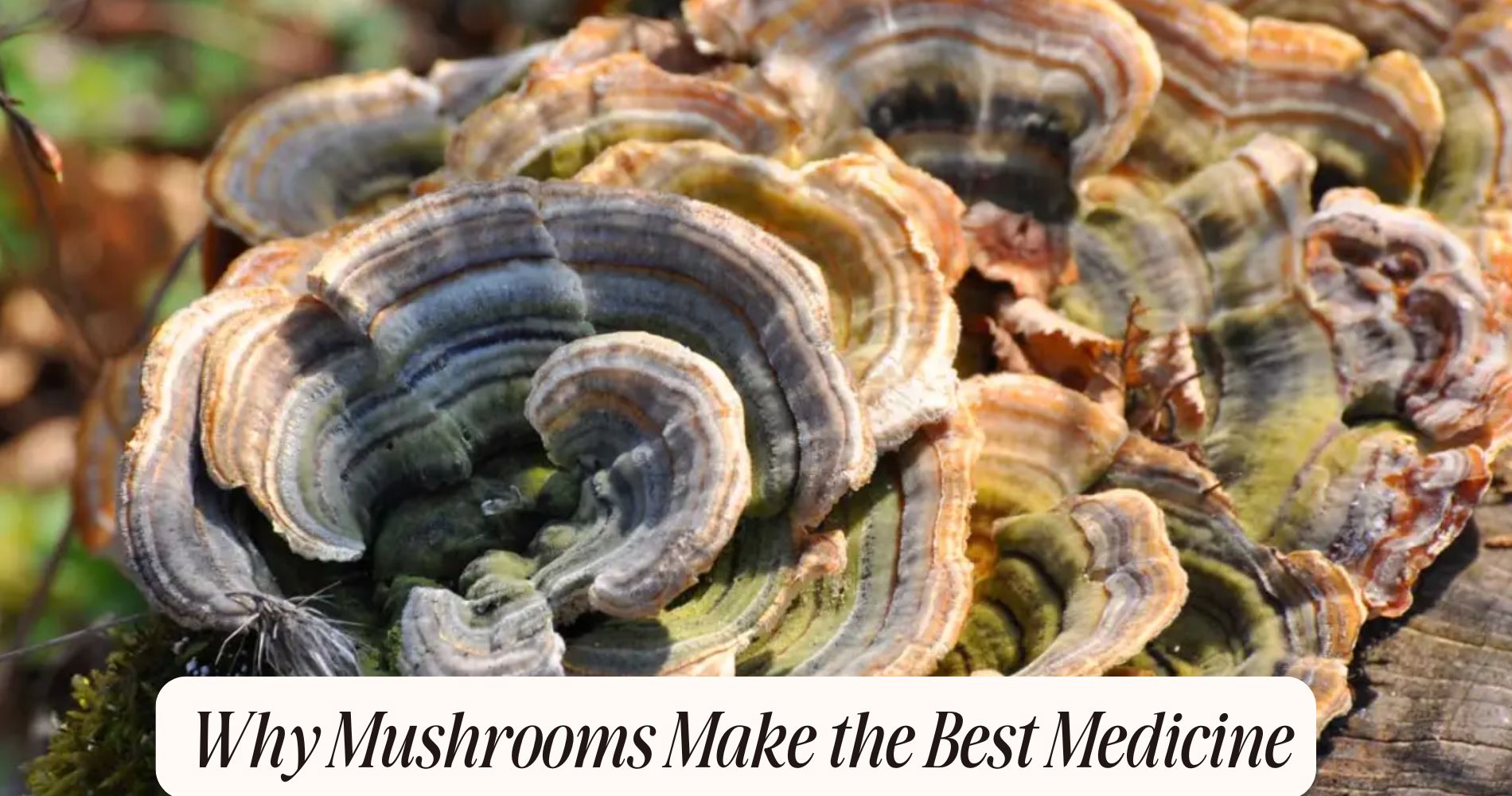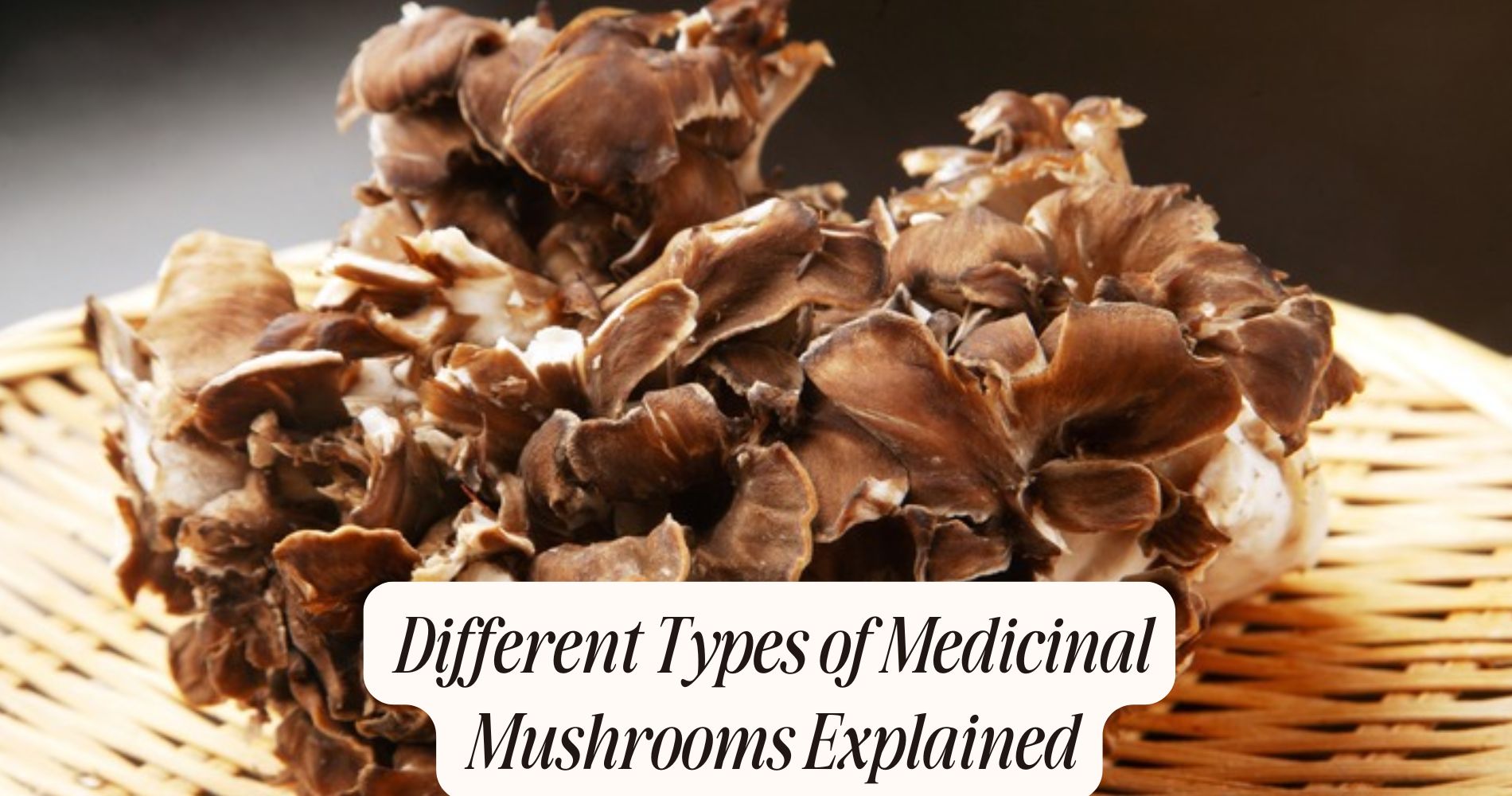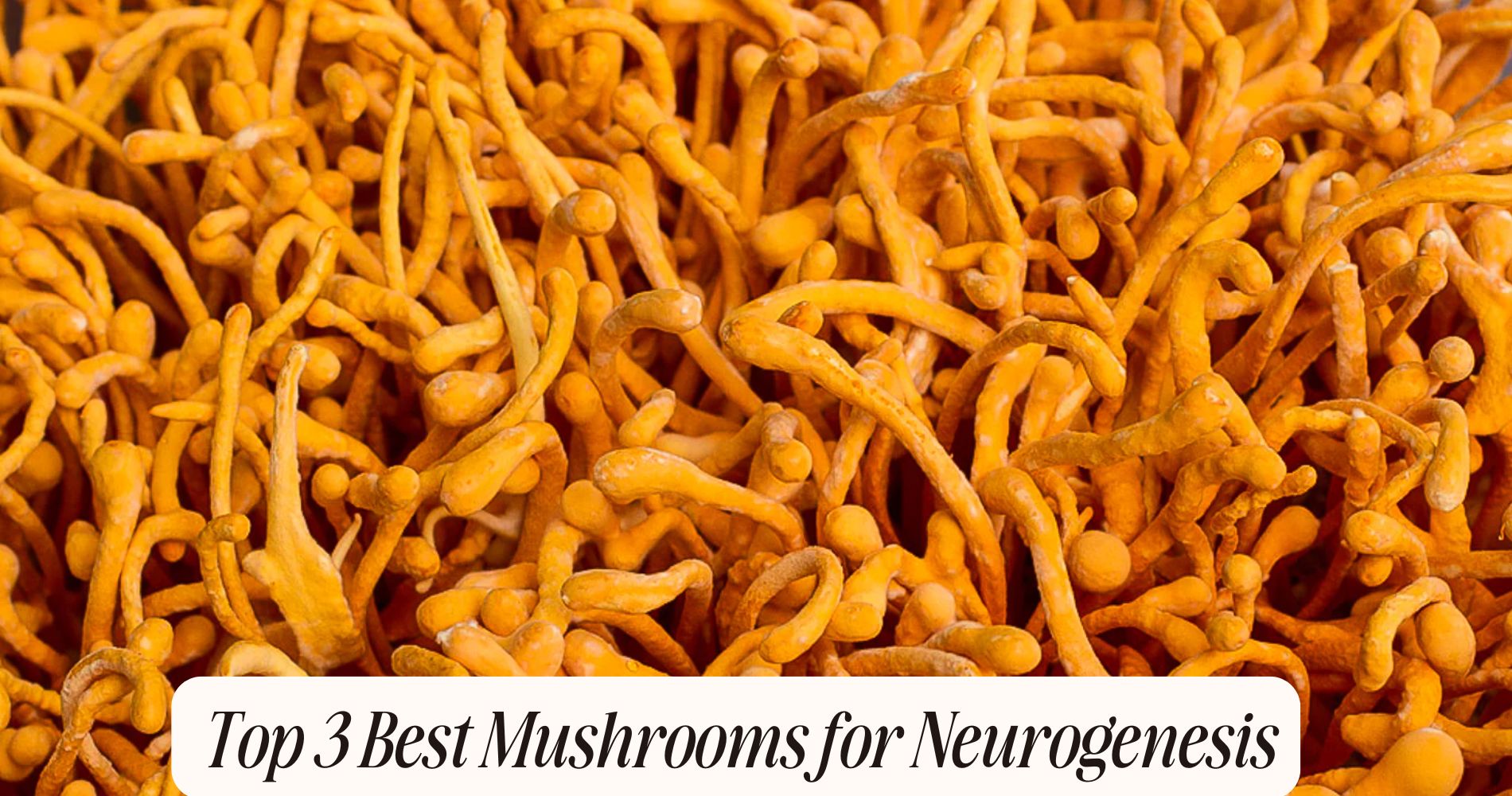
Why Mushrooms Make the Best Medicine
The Healing Power of Mushrooms
When you think of mushrooms, you might picture a tasty addition to your favorite dish, but their potential as medicine is equally remarkable. The healing power of mushrooms stems from their incredible mushroom diversity, which plays a vital role in various fungi ecosystems. Each species of mushroom harbors unique compounds that contribute to their medicinal properties, making them invaluable in traditional and contemporary medicine.
For instance, adaptogenic mushrooms like reishi and cordyceps have been shown to help the body adapt to stress, while lion's mane promotes cognitive function and nerve health. Research indicates that these fungi contain bioactive compounds such as polysaccharides, triterpenoids, and phenolic compounds, which exhibit anti-inflammatory, antioxidant, and immune-boosting effects.

Furthermore, the symbiotic relationships that mushrooms form within their ecosystems enhance their medicinal potential. Mycorrhizal fungi, for example, connect with plant roots, improving nutrient uptake and contributing to overall plant health, indirectly supporting human health through enhanced nutrition.
Incorporating various mushrooms into your diet or as supplements can harness their healing properties, showcasing the profound connection between mushroom diversity, fungi ecosystems, and human wellness.
Key Nutrients in Medicinal Fungi
Medicinal fungi boast a rich array of key nutrients that contribute greatly to their health benefits. Their nutritional profile includes essential vitamins like B-complex, which supports energy metabolism, and vitamin D, essential for bone health.
You'll also find minerals such as selenium and zinc, which play significant roles in antioxidant defense and enzyme function.
Beyond these vitamins and minerals, mushrooms are packed with medicinal compounds that further enhance their therapeutic potential. Beta-glucans, for example, are polysaccharides found in various fungi that have been shown to modulate immune response and promote overall health.
Additionally, triterpenoids and phenolic compounds exhibit anti-inflammatory and anti-cancer properties, making them valuable in health management.
Moreover, the presence of ergothioneine, a powerful antioxidant, helps protect your cells from oxidative stress, further solidifying the role of mushrooms in holistic wellness.
When you incorporate medicinal fungi into your diet, you're not just adding flavor; you're enriching your body with a complex blend of nutrients and bioactive compounds that support your health in multiple ways.
Understanding their nutritional profile empowers you to leverage these fungi for maximum benefit.
Boosting Immunity Naturally
Several studies demonstrate that mushrooms can markedly boost your immune system, making them a powerful ally in maintaining health. Various species, such as shiitake, reishi, and turkey tail, contain bioactive compounds like polysaccharides and beta-glucans that stimulate immune response. These compounds enhance the activity of immune cells, including macrophages, natural killer cells, and T-cells, which play vital roles in identifying and eliminating pathogens.

When you incorporate mushrooms into your diet, you're accessing a wealth of natural remedies that promote immune resilience. Research indicates that these fungi can modulate the immune system's balance, helping it respond more effectively to threats while preventing overreactions that could lead to autoimmune issues.
Additionally, mushrooms possess antioxidants that combat oxidative stress, further supporting overall immune health. Incorporating mushrooms into your meals or taking mushroom-based supplements can be a practical approach to harnessing their immune-boosting properties.
Anti-Inflammatory Properties
Emerging evidence highlights that mushrooms not only bolster immunity but also possess significant anti-inflammatory properties. Chronic inflammation is a key factor in many diseases, including heart disease, diabetes, and autoimmune disorders. Research indicates that certain mushroom compounds, such as polysaccharides and triterpenes, can effectively modulate inflammatory responses in the body.
When you consume mushrooms, these bioactive compounds interact with your immune system. They inhibit pro-inflammatory cytokines while promoting anti-inflammatory mediators. This dual action helps to restore balance, combating the detrimental effects of chronic inflammation.
For example, compounds found in shiitake and reishi mushrooms have been shown to reduce markers of inflammation, leading to potential therapeutic benefits for conditions linked to chronic inflammation.
Moreover, mushrooms possess antioxidant properties, which further aid in mitigating oxidative stress—another contributor to inflammation. By incorporating mushrooms into your diet, you could harness these potent compounds to support your body's natural ability to manage inflammation.
In this way, mushrooms serve not only as a delicious addition to your meals but also as a powerful ally in the fight against chronic inflammation.
Mental Health Benefits
Mushrooms offer remarkable potential for enhancing mental health, primarily through their bioactive compounds that influence neurotransmitter activity and promote neuroplasticity. Research indicates that certain compounds, such as psilocybin found in psychedelic mushrooms, can greatly affect serotonin receptors, leading to improved mood and reduced anxiety. This interaction fosters a state of mental clarity that many individuals seek in their pursuit of emotional well-being.
Mushroom therapy, particularly with psychedelic varieties, has gained traction in clinical settings, demonstrating efficacy in treating conditions like depression and PTSD. The therapeutic effects often stem from the ability of these compounds to facilitate profound psychological insights and emotional release.
Additionally, the neuroplastic effects encourage the brain to form new connections, which can be invaluable for those struggling with entrenched negative thought patterns.
Moreover, mushrooms like lion's mane have been shown to promote nerve growth factor (NGF) synthesis, which supports cognitive function and memory retention. This dual action of enhancing mood while simultaneously supporting cognitive health makes mushrooms a compelling option for mental health treatment.
As the scientific community continues to explore these benefits, mushroom therapy may redefine conventional approaches to mental health care.
Popular Medicinal Mushroom Varieties
When examining popular medicinal mushroom varieties, you'll find that each has unique benefits supported by scientific research.
Reishi is known for its stress-relieving properties, while Lion's Mane has garnered attention for enhancing cognitive function.
Additionally, Turkey Tail mushrooms are recognized for their immune-boosting capabilities, making them a valuable addition to your health regimen.
Reishi for Stress Relief
Reishi mushrooms, often referred to as the "mushroom of immortality," have garnered significant attention in the domain of natural remedies for stress relief.
Scientific research supports various reishi benefits, particularly its ability to assist in stress management. These mushrooms contain bioactive compounds, including triterpenoids, polysaccharides, and peptidoglycans, which contribute to their adaptogenic properties.
Adaptogens help the body adapt to stressors, modulating the stress response by balancing cortisol levels. When you consume reishi, you may find your body is better equipped to handle stress, resulting in improved emotional resilience.
Studies have shown that reishi can enhance sleep quality, which is essential for managing stress.
Furthermore, reishi's anti-inflammatory and antioxidant properties play a role in mitigating the physiological impacts of chronic stress. By reducing inflammation, you can lower the risk of stress-related health issues.
Regular use of reishi supplements or teas can provide a holistic approach to stress management.
Fundamentally, integrating reishi into your routine could be a proactive step towards achieving a calmer, more balanced lifestyle.
Lion's Mane Brain Benefits
A growing body of research highlights the impressive cognitive benefits of Lion's Mane mushroom, making it a popular choice among those seeking to enhance brain health.
This unique fungus contains compounds like hericenones and erinacines, which stimulate the production of nerve growth factor (NGF). NGF is essential for the growth, maintenance, and survival of neurons, playing a significant role in cognitive enhancement.

Studies show that Lion's Mane may improve memory and cognitive function, particularly in older adults experiencing mild cognitive impairment. Participants in clinical trials demonstrated better scores in cognitive tasks after regular supplementation with Lion's Mane, suggesting its potential as a natural nootropic.
Additionally, its neuroprotective properties may help combat neurodegenerative diseases such as Alzheimer's and Parkinson's.
Moreover, the anti-inflammatory and antioxidant effects of Lion's Mane also contribute to brain health by reducing oxidative stress.
By incorporating Lion's Mane into your diet, whether through extracts, powders, or culinary dishes, you could actively support your cognitive function.
Turkey Tail Immune Support
Building on the foundation of cognitive health, Turkey Tail mushroom (Trametes versicolor) emerges as a powerhouse for immune support. This remarkable fungus contains polysaccharide compounds, particularly polysaccharide-K (PSK) and polysaccharide peptide (PSP), known for their significant roles in enhancing the immune response.
When you incorporate turkey tail into your wellness routine, you're not just consuming a mushroom; you're engaging with a natural ally that modulates immune activity.
Research shows that turkey tail can stimulate the production of immune cells such as macrophages and T-cells, which are vital in combating various pathogens. These compounds also help balance the immune system, promoting a robust response without overreacting, which can lead to autoimmune issues.
Furthermore, turkey tail's potential in supporting gut health through its prebiotic fibers further contributes to immune efficiency, as a healthy gut microbiome is essential for peak immune function.
Incorporating turkey tail into your diet, whether through supplements or teas, can be a strategic choice. This mushroom not only supports your body's defenses but also fosters overall health, making it a valuable addition to any holistic health regimen.
Traditional Uses Across Cultures
Throughout history, various cultures have harnessed the therapeutic properties of mushrooms, integrating them into ancient healing practices.
You'll find that fungi not only hold medicinal value but also carry significant symbolism in rituals and folklore across different societies.
Today, as modern science explores these traditional uses, it's clear that many of these ancient applications are being adapted for contemporary health solutions.
Ancient Healing Practices
Mushrooms have captivated human interest for millennia, serving not only as a food source but also as powerful agents in traditional medicine across various cultures. Ancient remedies derived from fungi have been integral to healing practices, reflecting a deep understanding of nature's pharmacology.
For instance, in Traditional Chinese Medicine, certain mushrooms like reishi and cordyceps have been used for their adaptogenic properties, believed to enhance energy and immune function.
Similarly, Indigenous cultures in North America utilized mushrooms like the turkey tail for their immune-boosting capabilities, often incorporating these fungal traditions into their spiritual practices.
In Europe, the use of amanita muscaria has roots in shamanic rituals, where it was thought to facilitate communication with the spirit world while also serving medicinal purposes.
These ancient practices underline a profound connection between humans and fungi, revealing that the therapeutic potential of mushrooms has been recognized long before modern science validated these claims.
Cultural Significance of Fungi
While many people appreciate fungi primarily for their culinary uses, their cultural significance extends far beyond the kitchen, deeply embedded in traditional practices across diverse societies.
You'll find that many cultures revere mushrooms within their folklore, attributing magical and medicinal properties to them. For instance, in various Indigenous cultures, mushrooms often symbolize connection to the spirit world, serving as conduits for healing and insight.
Fungal rituals are prevalent across continents; in Siberian shamanism, for example, the Amanita muscaria mushroom is consumed during ceremonies to induce altered states of consciousness, facilitating communication with ancestral spirits.
Similarly, in Mesoamerican societies, mushrooms have been integral to religious experiences, with species like Psilocybe cubensis being utilized to induce visions.
These traditional uses highlight how fungi serve as more than just a food source; they embody cultural identity and spiritual practices.
By participating in these rituals, individuals reaffirm their connection to their heritage and the natural world, demonstrating the profound role fungi play in shaping human experience.
Understanding these cultural contexts enriches our appreciation for fungi, reminding us that their significance is multifaceted, blending the culinary with the spiritual.
Modern Adaptations and Uses
Fungi have found their way into modern medicine, drawing from traditional practices that have been used for centuries. Today, mushroom extracts are increasingly recognized for their therapeutic properties, harnessing the wisdom of ancient cultures. For instance, reishi and lion's mane mushrooms have been studied for their potential neuroprotective effects, offering a glimpse into how these fungi can enhance cognitive function and overall brain health.

In the culinary world, mushrooms aren't just flavorful additions; they're also powerhouses of nutrition. Chefs are creatively incorporating medicinal mushrooms into everyday dishes, transforming meals into functional foods that support wellness. By blending culinary applications with health benefits, you're not only savoring delicious flavors but also gaining the advantages of their bioactive compounds.
Research continues to reveal the pharmacological potential of these fungi, leading to innovative formulations that may address various health concerns, from immune support to anti-inflammatory effects.
As you explore the modern adaptations of mushrooms in both medicine and cuisine, you'll discover a rich tapestry of benefits that connect ancient wisdom with contemporary science, reinforcing the idea that these remarkable organisms can play a significant role in your health and well-being.
Modern Research and Findings
Recent studies have revealed a wealth of medicinal properties associated with various mushroom species, sparking significant interest in their therapeutic potential.
You'll find that research in mushroom pharmacology focuses on bioactive compounds like polysaccharides, triterpenoids, and phenolic compounds, which exhibit anti-inflammatory, antioxidant, and anticancer properties. For instance, clinical trials involving reishi and lion's mane mushrooms have shown promising results in enhancing immune response and cognitive function, respectively.
Moreover, ongoing investigations are examining the role of psilocybin, a compound found in certain mushrooms, in treating mental health disorders. Early-phase clinical trials indicate its potential in alleviating depression and PTSD symptoms, demonstrating a paradigm shift in psychiatric treatment approaches.
As you explore the findings, you'll notice that researchers are employing advanced techniques such as metabolomics and genomics to understand the mechanisms behind these effects.
This extensive approach not only validates traditional uses but also uncovers new therapeutic avenues. The growing body of evidence underscores the importance of mushrooms in modern medicine, paving the way for future innovations in treatments and health interventions.
How to Incorporate Mushrooms
Incorporating mushrooms into your diet can greatly enhance your health due to their rich array of bioactive compounds. To reap the benefits, start with simple mushroom recipes that highlight their unique flavors and textures. Sautéing, for example, allows you to maximize the umami taste while retaining essential nutrients. Use olive oil or ghee for cooking; both fats can enhance the absorption of fat-soluble vitamins present in mushrooms.
Consider using various cooking techniques such as grilling, roasting, or adding them to soups and stews. Grilling mushrooms intensifies their flavors through caramelization, while roasting brings out their natural sweetness. You can also blend finely chopped mushrooms into sauces or marinades, providing depth without overwhelming other ingredients.
Incorporating different varieties of mushrooms, like shiitake, maitake, or reishi, can diversify your nutrient intake. Each type boasts unique health benefits, from boosting immunity to reducing inflammation.
Safety and Considerations
When adding mushrooms to your diet, it's important to contemplate safety and potential risks associated with their consumption. First, consider mushroom sourcing. Opt for reputable suppliers or grow your own to avoid toxic varieties that can resemble edible ones. Wild mushrooms can be particularly hazardous; unless you're an expert, it's best to avoid foraging.
Next, adhere to dosage guidelines. While medicinal mushrooms like reishi or lion's mane offer health benefits, excessive intake can lead to adverse effects. Start with small doses and monitor your body's response, gradually increasing if needed. Specific recommendations vary, but a common range is 1 to 3 grams of dried mushrooms daily.
Be mindful of potential interactions with medications. Some mushrooms may enhance or inhibit the effects of pharmaceuticals, so consult a healthcare professional before incorporating them into your routine, especially if you have underlying health conditions.
Lastly, consider allergic reactions. While rare, some individuals may experience sensitivities. Always listen to your body, and if you notice unusual symptoms after consumption, discontinue use and seek medical advice.
Frequently Asked Questions
Can Mushrooms Interact With Prescription Medications?
Yes, mushrooms can interact with prescription medications, potentially affecting their efficacy or safety. It's essential to consult healthcare professionals to guarantee prescription safety, as certain mushroom interactions may alter drug metabolism or enhance side effects.
Are There Any Side Effects From Consuming Medicinal Mushrooms?
Yes, consuming medicinal mushrooms can cause side effects, including potential allergies. It's essential you follow dosage recommendations to minimize risks, ensuring you reap the benefits while avoiding adverse reactions that could arise from improper use.
How Should Mushrooms Be Prepared for Maximum Benefits?
To maximize benefits, you should employ various cooking methods, like sautéing or steaming, and utilize extraction techniques, such as boiling or alcohol extraction, to enhance bioavailability of the beneficial compounds in mushrooms effectively.
Can Anyone Consume Medicinal Mushrooms, Including Children and Pregnant Women?
Yes, anyone can consume medicinal mushrooms, but you should follow safety guidelines and dosage recommendations. Always consult a healthcare professional, especially for children and pregnant women, to ascertain safety and effectiveness tailored to individual needs.
Where Can I Find High-Quality Medicinal Mushrooms?
You can find high-quality medicinal mushrooms by sourcing them from reputable suppliers, health food stores, or online retailers. Explore various mushroom varieties like reishi, lion's mane, and chaga for their unique health benefits and qualities.
Conclusion
Incorporating mushrooms into your diet can reveal a myriad of health benefits, from enhanced immunity to improved mental well-being. Their unique compounds, rich in essential nutrients, support anti-inflammatory responses and offer a natural remedy for various ailments. While traditional uses underscore their cultural significance, modern research validates their medicinal potential. As you explore different varieties, be mindful of sourcing and preparation methods to maximize safety and efficacy. Embracing mushrooms as medicine could greatly elevate your holistic health strategy.




